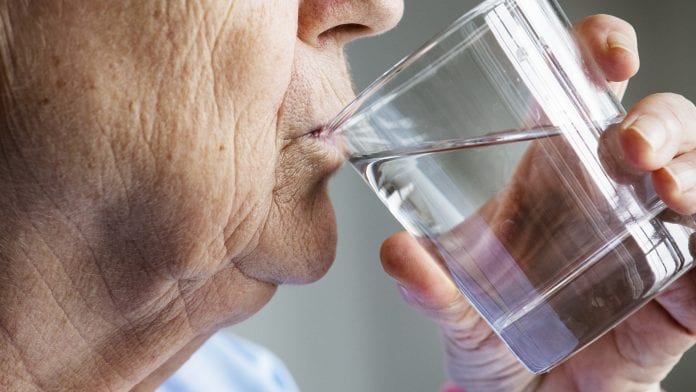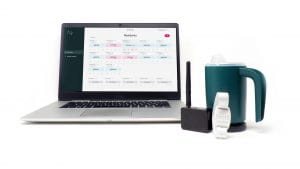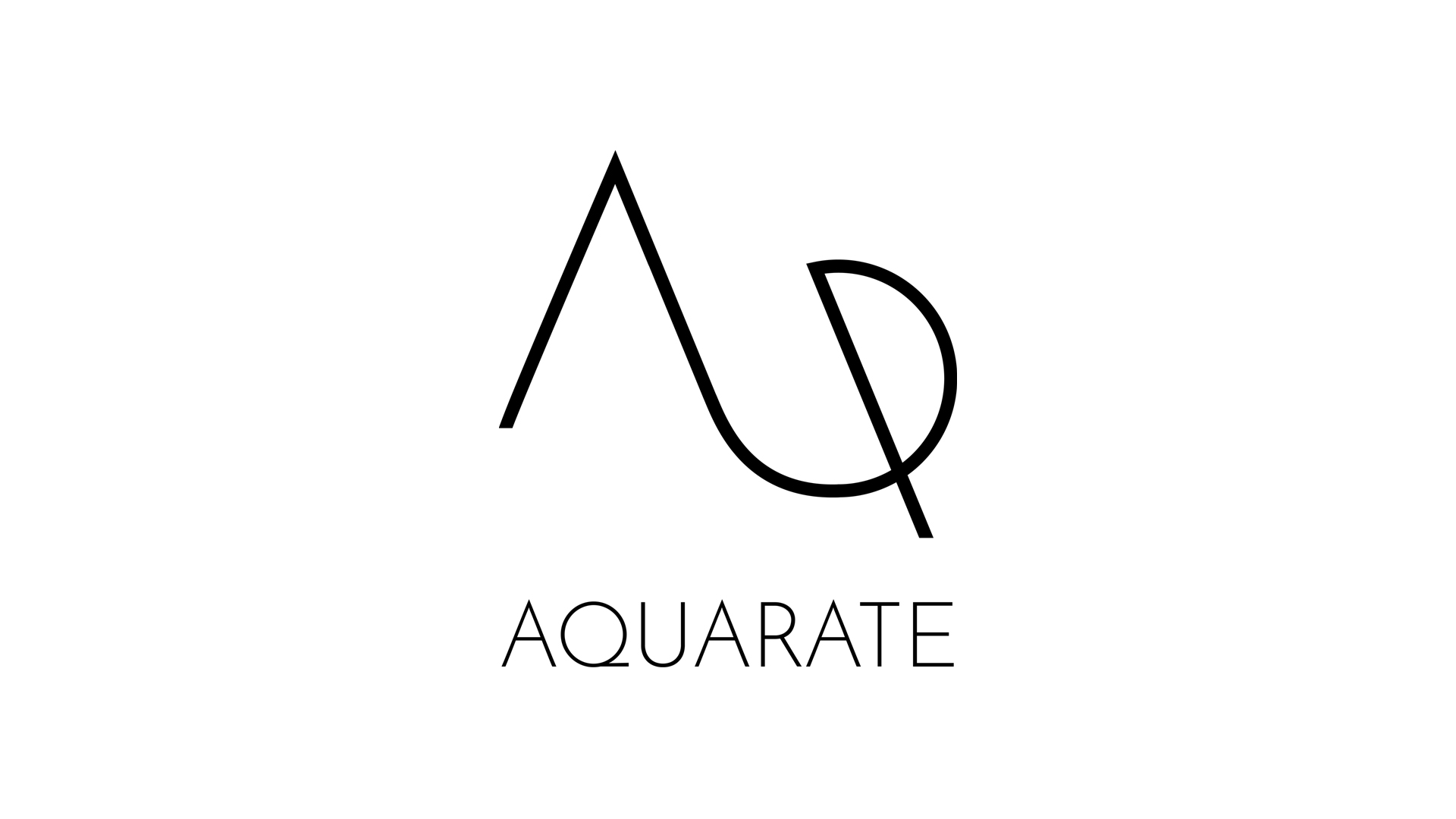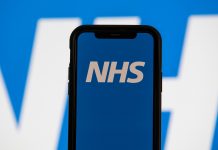
Rebecca Taylor, CEO and Founder of Aquarate, explains the importance of hydration and introduces the new Hydracare system.
Hydration is a key aspect of elderly care. It can become more difficult to stay hydrated as we age, as our bodies retain less water and the signs of dehydration are often milder, meaning that we may not feel thirsty until we are already significantly dehydrated.
Fluid is so important to our overall health that even when levels drop only slightly, we begin to feel the consequences. Low levels of fluid in the body can cause headaches, feelings of dizziness, lethargy, poor concentration and a dry mouth.
Dehydration is more common in those with cognitive impairment and changes in functional ability. Swallowing difficulties, dementia and poorly controlled diabetes are more common in older people and are all associated with poor hydration.

Dehydration-related hospital admissions
Over 40,000 avoidable hydration-related deaths occur in the UK annually, creating unnecessary pressure on our healthcare system. Dehydration is a predictable and avoidable emergency diagnosis that should never occur, but in the UK alone, disease-related malnutrition and dehydration cost the NHS more than £13bn per year.
37% of all elderly patients admitted to the emergency department are dehydrated; and of these patients, 62% are still dehydrated 48 hours after admission due to improper monitoring and lack of priority given to hydration in hospitals.
Falls due to dehydration are the main cause for hospital admissions. Daimon Wheddon, area clinical lead at East of England Ambulance Service, says: “Fall-related calls make up a large percentage of the incidents we attend every day. We regularly see dehydration as a contributory factor in our elderly patients who have fallen; common complications include low blood pressure, weakness and dizziness, all of which can increase the risk of falls.”
COVID-19 and hydration
The coronavirus pandemic has taken a grim toll on social care services in England. Since March 2020, there have been more than 40,000 excess deaths among care home residents in England due to COVID-19. The social care system is underfunded, understaffed, undervalued and at risk of collapse.
According to Aspen, “hydration plays an important role in your body’s response to and recovery from the COVID-19 virus and is an essential part of your medical treatment. With an infection, the body must work intensely to mount an immune response. High fever is the immune system’s way of revving up metabolism to ‘battle the bug’.”
COVID-19 can present with a variety of symptoms, but one potentially dangerous symptom most people are not particularly excited to talk about is diarrhoea: an estimated 20% of COVID-19 patients are likely to experience diarrhoea soon after contracting the disease. People with compromised immune systems, including those recovering from COVID-19, are at the greatest risk of developing diarrhoea and other gastrointestinal symptoms, including vomiting and nausea.
When someone is experiencing diarrhoea, their bodies are no longer maintaining the important balance of water and sodium, often leading to dehydration. This dehydration, coupled with COVID-19, can affect the function of a person’s lungs, which can result in pneumonia.
Kirstine Farrer, Consultant Dietitian at Salford Royal NHS Foundation Trust, says: “Dehydration is a serious condition which can increase a person’s risk of infection as well as slow down their recovery. Those with an infection such as COVID-19 are also at higher risk of developing malnutrition and dehydration, which slows their recovery and may consequently result in readmission to hospital and further complications.”
With COVID-19 taking high priority over the last 12 months, it is more important than ever that remote and accurate monitoring of residents can be put in place to ensure proactive monitoring to prevent further deterioration and enable swift medical response.
Current fluid intake monitoring methods
Inadequate fluid intake is a major contributor to preventable dehydration. Poor oral intake of fluids can be related to the inability to feed independently and having poor availability and access to fluids. This can be exacerbated in the residential care setting by inadequate staff training and lack of awareness of the importance of hydration.
Inaccurate manual fluid paper charts have been used year after year within the care sector, despite being widely known as an ineffective tool. This method means that staff have to ask the patients what they have had to drink, and relies on the patient remembering what they have had to drink.
For those unable to report to staff what they have consumed, the system relies on staff being around when drinks are collected, which is not always possible. Intravenous fluid recording can vary and output monitoring can prove difficult, particularly if the patient is mobile. These, amongst other issues, leads to discrepancies in the accuracy of fluid balance charts.
As the healthcare market continues to battle to keep up with the increasing demand and new pressures from COVID-19, remote fluid intake monitoring has never been needed more.
Introducing Aquarate
Aquarate has developed Hydracare: an automated fluid monitoring system that tracks how much an individual drinks using their Hydracup.
Hydracup is the only smart cup on the market which can produce accurate data that integrates into care systems, saving staff time, and delivering quality care. The Hydracup discreetly tracks an individual’s fluid intake by measuring liquid volume automatically, allowing caregivers to proactively support further fluids to those who need it the most.
Hydracare technology ensures accurate, automated sip-by-sip fluid monitoring to reduce incidences of dehydration and patient safety issues, increasing quality of care.
Hydracare has been designed for domiciliary care and care homes to save nursing time and reduce avoidable hospital readmissions. “Living with various medical conditions, it’s really important to make sure I drink plenty of water to keep hydrated,” says 90-year-old Jessie Fraser. “The Hydracup is a great solution: it is easy to drink from, feels comfortable to hold and lets me know exactly how much liquid I’ve consumed each day. A really great product!”
Hydracare benefits
- 24/7 accurate real-time fluid intake data for carers
- Intelligent remote monitoring, reducing the time taken for nurses to record fluid intake
- Reduced patient safety issues
- Supports independent living for longer
- Fluid intake history to help keep track of the past
- Restricted fluid management to help limit consumption
- Works with hot and cold drinks
- Commercial dishwasher-safe for quick and easy cleaning
- Up to five-day battery life with low battery indicator
- Spill detection with immediate alerts so caregivers can react quickly to accidents
User feedback
Our latest user is 90-year-old Ronald Corbett who still lives with his wife Vera in their own home. With recent health issues and facing dementia, their family were keen for an easy way to monitor their hydration.
The family have been using the Hydracup for two months now and are delighted with the results: “We now know with confidence how much my dad is drinking each day and it is helping to keep him properly hydrated. He is alert and seems like his old self again!”
Liverpool Royal’s Acute Kidney Injury nurses Katie Rimmer Algate, Natalie Erickson, Jenni Soddern and Marie McCarthy loved the Hydracup, commenting: “The accuracy of the fluid balance charts are currently only as good as the person filling them in. To have a digital system in place may help to improve the accuracy and eliminate some of the factors affecting the current process of manual completion.”
Get in touch
Hydracare is now available for use in your organisation or home environment. If you are passionate about providing quality care and ensuring patients are properly hydrated, please get in touch.
Aquarate is also welcoming clinicians, so if you would like to be a part of our journey contact Rebecca at the below email address.
This article is from issue 18 of Health Europa. Click here to get your free subscription today.

























